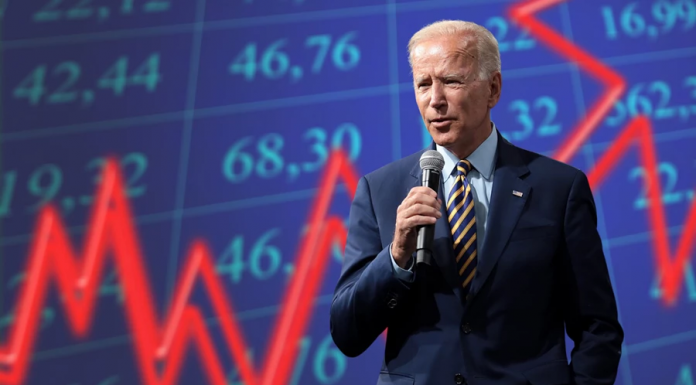(Brad Polumbo, Foundation for Economic Education) Sympathetic media outlets have repeatedly asserted that Democratic presidential nominee Joe Biden’s tax agenda would only hurt the wealthy. But a new study shows that Biden’s tax and regulatory agenda could seriously hurt the economy overall.
Four economists from Stanford University’s Hoover Institution analyzed Biden’s proposals to increase taxes, reinstate and expand a host of regulations, and create new subsidies for healthcare and renewable energy. The study concludes that these interventions would distort labor incentives, decrease productivity, and kill jobs.
As a result, the experts project that the policy agenda would, by 2030, lead to 4.9 million fewer jobs and the economy shrinking by $2.6 trillion. So, too, the study projects that consumption would be $1.5 trillion lower in 2030 and families would see a $6,500 drop in median household income compared to a neutral scenario.
“The risk from Joe Biden’s policies isn’t that they will send the economy reeling right away,” the Wall Street Journal editorial board concluded in its analysis of the study.
“The problem is that they will have a long-term corrosive impact by raising the cost of capital, reducing the incentive to work and invest, and reducing productivity across the economy. Americans will pay the price in a lower standard of living than they otherwise would—and that they deserve.”
It’s crucial to understand not just what Biden’s government-heavy agenda would do to the economy, but why.
Tax hikes hurt the economy because they reduce incentives to work and produce.
“Taxing profits is tantamount to taxing success,” famed free-market economist Ludwig Von Mises once wrote. “Progressive taxation of income and profits means that precisely those parts of the income which people would have saved and invested are taxed away.”
Biden has promised to raise the corporate tax to 28 percent. Higher corporate taxes means less money available for investment, expansion, and new hiring—“taxing success,” as Mises wisely dubbed it. This means fewer jobs and lower wages for workers, as well as fewer offerings (especially of innovative new products) and lower quality for consumers.



